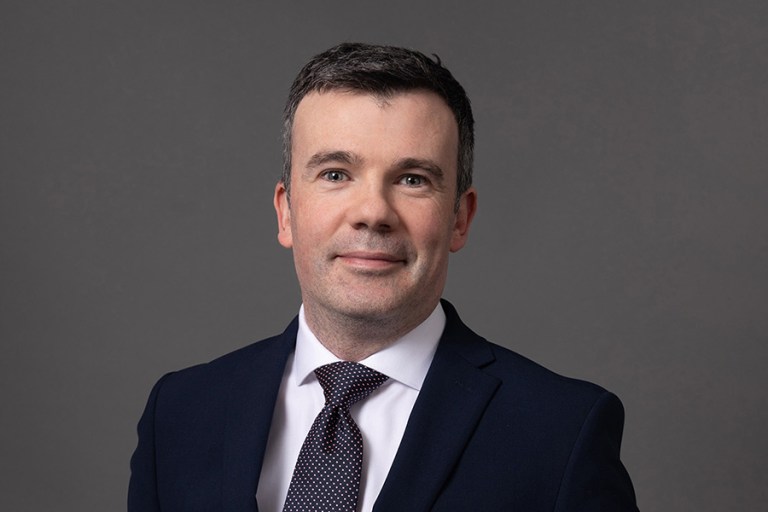A recent decision by Mr Justice Micheál P. O’Higgins of the High Court in Sheill v The Medical Council of Ireland [2024] IEHC 710 provides helpful guidance in respect of registration and registration appeals issues, as well as the ever present consideration of the applicable level of ‘fair procedures’ to be applied in the professional regulation setting. In particular, the judgment considers the level of fair procedures required in the context of an administrative hearing, as distinct from a disciplinary hearing and accordingly will be of particular interest to regulatory bodies and legal practitioners who practise in this area, alike.
The High Court’s consideration of the matter arose by virtue of an appeal by Dr Sheill (the “Appellant”) in respect of a decision by the Medical Council to refuse his application for registration, the right of appeal in respect of which is to the High Court.
- Background Facts
The appellant had practised as a doctor in the UK for several years but had held parallel registration with the Medical Council of Ireland in the late eighties.
i. GMC Hearing
In the context of the appellant’s UK registration and following a Fitness to Practise Hearing in which a total of forty three allegations of misconduct were proven against him, the appellant was subjected to the sanction of erasure by the General Medical Council (“GMC”). The cancellation of the appellant by the GMC occurred in 2007.
ii. Appeal to High Court of England and Wales
The appellant appealed to the High Court of England and Wales in respect of the forty three findings made against him which related broadly to dealings with the Healthcare Commission in the context of his providing medical services in unregistered cosmetic and weight-loss clinics; prescribing and medicinal storage irregularities; failure to comply with instructions of the Healthcare Commissions and GMC Interim Orders Panel; as well as allegedly unprofessional and abusive behaviour towards patients.
The appellant was unsuccessful in his appeal regarding all bar two findings against him, which allegations related to alleged dishonesty.
iii. Application for Registration to Medical Council
In view of his prior registration with the Medical Council of Ireland, the appellant applied to the Medical Council for restoration of his name to the Register of Medical Practitioners in 2017.
The application was initially considered and ultimately refused by the Registration and Continuing Practice Committee (“RCPC”), who formed the view that the Appellant did not show sufficient insight into the circumstances that had led to his erasure from the GMC register, which circumstances were of a serious nature. The RCPC recommended that the application be refused and notified the Appellant of this recommendation.
Given the three tier process for registration applications operated by the Medical Council, the Appellant appealed the outcome in November 2017 to a review panel, which appeal was heard over four days in 2022. Having considered the Appellant’s appeal, the Review Panel recommended that the Appellant’s application be refused.
The Medical Council then convened in April 2023 to consider the application, and the Appellant was again permitted to make submissions. It ultimately accepted the Review Panel’s recommendation and refused the Appellant’s application, pursuant to s.54 of the Medical Practitioners Act 2007 (as amended) on the basis that he was unfit to practise medicine in Ireland and was not amenable to regulation.
iv. Ultimate Appeal to High Court
The appellant appealed to the High Court, alleging inter alia breach of fair procedures; discrimination on grounds of his sexual orientation; bias; and failure to provide an in person hearing.
- High Court Consideration
In considering the appellant’s lengthy submissions, the High Court provided helpful commentary and guidance in respect of the various issues raised.
- Distinction between Administrative and Disciplinary Hearing
In considering the argument that insufficient fair procedures had been afforded to the appellant by the Medical Council in the context of his registration appeal, the High Court differentiated as between a registration appeal and a disciplinary hearing. As such, Mr Justice O’Higgins disagreed with the appellant’s argument that the nature of his application to the Medical Council was such as to engage Article 6 of the European Convention on Human Rights (ECHR). In this regard, the Court was careful to distinguish the fact that this was not an application to discipline the appellant, or to revoke a licence, placing particular significance also on the Medical Council’s contention that the appellant’s rights, if any, were fully safeguarded by his right to appeal to the High Court.
- Entitlement to consider GMC Decision
With regard to the relevance placed on the decision of the GMC to cancel the appellant’s registration, which was improper in the submission of the appellant, the High Court held that this was properly a relevant matter which the Medical Council was entitled to consider. To that end, the High Court indicated that to do otherwise would be in breach of the Medical Council’s statutory obligations as well as its obligations in the context of public protection and maintenance of professional standards amongst medical professionals. The court also rejected the appellant’s contention that the Medical Council was prohibited from considering his conduct where same did not constitute a criminal offence in Ireland.
Crucially, the High Court found that the Medical Council had not ‘rubber stamped’ the GMC decision but, rather, had given it the weight which it deemed appropriate in all the circumstances. Indeed, the High Court separately considered the degree to which the Medical Council had considered and taken into account the degree of insight shown by the appellant, focusing very much on the appellants insight at the time of hearing before the Medical Council, as opposed to the historical misconduct findings.
- Conduct of Hearing
With regard to the appellant’s submissions that his hearings should not have been conducted on Zoom and that the Review Panel was improperly constituted, Mr Justice O’Higgins found that the appellant had not identified any issue of prejudice or unfairness arising from same. It is of interest that the High Court also specifically pointed to the fact that the appellant had not made any such objection before the Review Panel or the Medical Council itself.
- Suggestion of Bias/ Discrimination
In respect of the appellant’s contention that he had been discriminated against in the context of the Medical Council’s consideration of the application and appeal on the grounds of sexual orientation, the High Court found that there was no basis for same. In so finding, the High Court described the arguments advanced in respect of this point as “wild and unfounded allegations unsupported by evidence”, emphasising that allegations of such a serious nature ought not to be made in the absence of a clear and rational basis for same.
- Fair Procedures
Differentiating as between the different types of determinations made by bodies such as the Medical Council and the consequent impact on the level of formality and fair procedures to be afforded, the High Court found that the hearings provided to the appellant were relatively formal with a reasonably sophisticated suite of procedural safeguards in place. The court also determined inter alia that all relevant materials had been considered, that the correct test under s.54(1) of the 2007 Act had been applied, and that the appellant had been given detailed reasons for the decision.
Furthermore, the court was satisfied that the Medical Council was entitled to be concerned about the level of insight shown by the appellant throughout the process and highlighted that the issues suggestive of the appellant being unfit to practise went beyond the findings by the GMC and included the engagement by the appellant with the Medical Council, particularly in the context of the questions and answers session which formed part of the process.
- Administrative v Disciplinary Hearings
In finding that the Medical Council procedures were ultimately ‘administrative’ in nature, the High Court nonetheless determined that certain fundamental safeguards should apply given the significant implications of any such decision.
In determining whether such safeguards have been provided in a particular set of circumstances, the Hight Court found that any such determination ought to be made ‘in the round’. In the instant case, the Court was satisfied that a “reasonably sophisticated suite of procedural safeguards” had been afforded to the appellant, taking into account that the Appellant was afforded the opportunity to call witnesses but declined; was afforded the opportunity to call whatever evidence he wished; was given ample opportunity and time to make submissions, which was availed of by the Appellant; was afforded the right to legal representation; was provided with copies of the relevant materials in advance and that the Review Panel had the benefit of advice from legal counsel in the context of the hearing and determination.
Ultimately, the High Court refused the appeal.
Comment
The decision of the High Court in Sheill offers helpful analysis of the considerations to be adopted by regulatory and public bodies in the context of devising procedures for and facilitating hearings in respect of ‘administrative’ decisions of this nature. Whilst ultimately determining that the appropriate safeguards had been provided in this case, the High Court repeatedly referenced the fact that the assessment would always be circumstance specific as well as being a cumulative assessment.
Whilst specific aspects of the process were deemed ultimately not to be flawed, this must be considered by reference to all of the additional safeguards available to the appellant in the particular circumstances. Furthermore, it is of note that issues advanced including delay did not merit consideration in particular depth, owing to the particular facts of the case and, to a significant degree, the fact that significant aspects of the delay experienced were as a result of the appellant’s own health difficulties, in addition to issues relating to the Covid-19 pandemic. It remains to be seen, however, how issues such as this raised in different circumstances may be assessed by the High Court, both in the context of administrative matters such as this and indeed in the context of professional regulation and disciplinary hearings more generally.
The decision is of relevance not only in the context of administrative hearings, from the point of view of regulatory bodies, but also in the context of considering how disciplinary hearings and the processes which underpin them are conducted. Indeed, the several points of distinction as between disciplinary and administrative hearings in Sheill serve to underscore the higher and more onerous threshold of fair procedures necessitated in the context of disciplinary hearings, given the significance of what is at stake.

